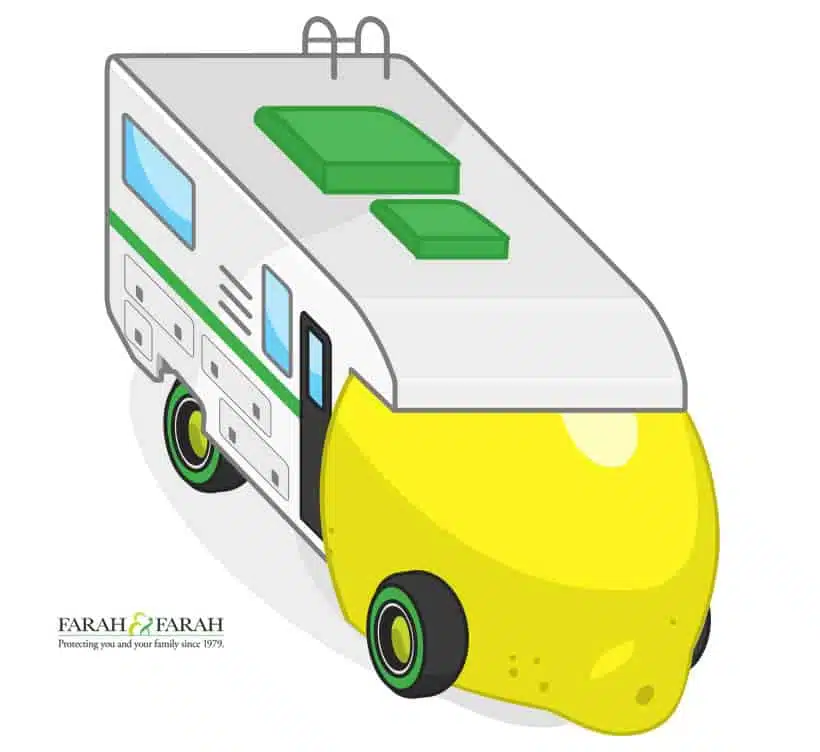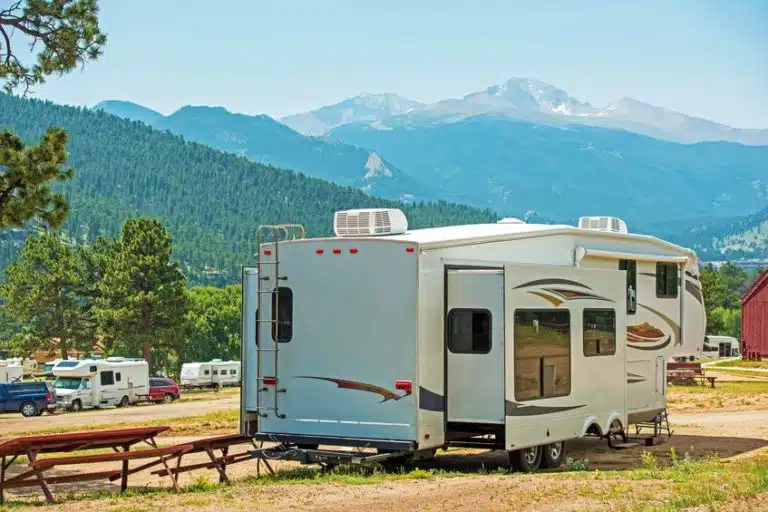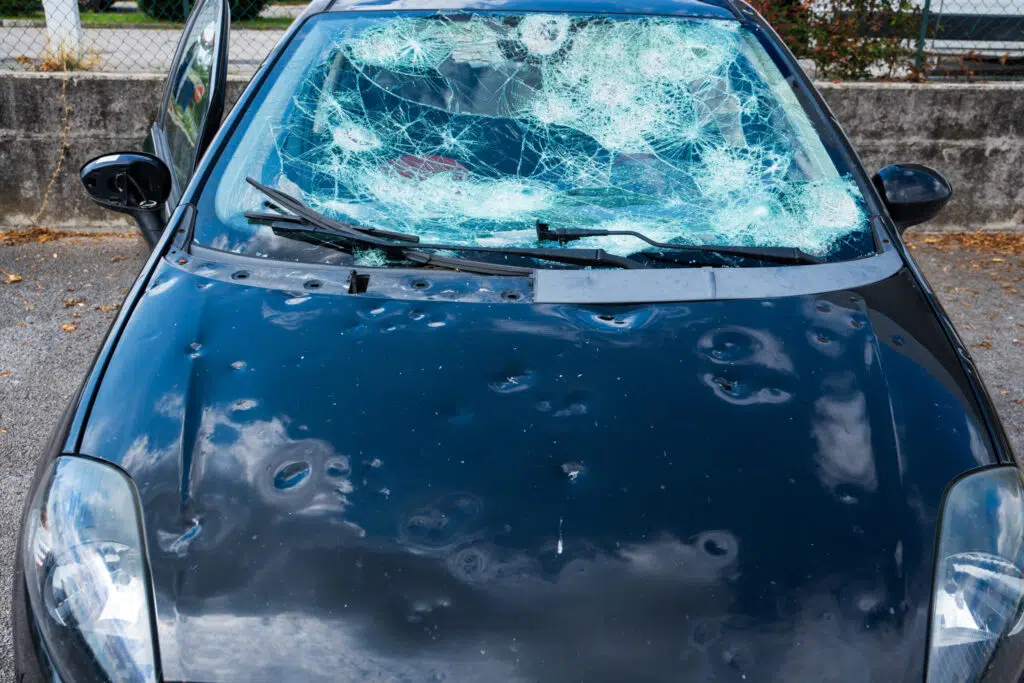RV Lemon Law Attorneys
Purchasing a motorhome or any kind of RV is a big investment. A recreational vehicle represents the freedom to travel the country and to take your home with you, whether it’s to go on a long vacation or to visit family. If your new RV turns out to be a lemon, that isn’t just an annoyance or a financial burden. It’s also a disappointment that can crush your dreams.
Home » Lemon Law Attorneys » RV Lemon Law Attorneys
Fortunately, if you have purchased a lemon, there are legal obligations on the part of the manufacturer to make things right. If they don’t, you have legal recourse with either state or federal laws.

What Qualifies as an RV?
There are a variety of vehicles, including different types of motorhomes, campers, and trailers that are classified as RVs. The type of vehicle you own determines what kind of recourse you have under the law and what avenues you can pursue for relief. Not every type of RV is covered under state lemon laws, so it’s important to know exactly what kind of RV you have purchased before you pursue any legal action.
- Class A Diesel Motorhome
- Class A Gas Motorhome
- Class C Motorhome
- Class B Motorhome
- Fifth Wheel Camper
- Toy Hauler
- Travel Trailer
- Toy Hauler
- Tiny Camper/Teardrop Trailer
- Pop-up Camper
Multiple Manufacturers
RVs are often manufactured by different companies. The vehicle portion of the RV may have been made by a different company from the residential area. On top of that, there could be another company that assembled the different parts. Each company would provide their own warranties to the parts that they manufactured.
Multiple Warranties
Because each RV can have multiple manufacturers, there would also be multiple warranties involved. It’s important to keep track of which part of your RV is warrantied by which company so you’re notifying the correct company of a defect or irregularity. When you purchase an RV, the company that sells it to you should provide all of the necessary warranty paperwork so you know which part of your RV is covered by which company.
State Lemon Laws
Every state has lemon laws that require the manufacturer to either repurchase or replace a vehicle that has undergone a requisite number of repair attempts or has been out of service and unavailable to its owner (or lessee, if the lessee is responsible for repairs) for a certain number of days. Depending on the state in which you live, your RV may or may not be covered.
In Florida, the vehicle portion of an RV or motorhome is covered by the state lemon laws, but the living area is not. In addition, not every type of RV is covered. Lemon laws are designed to protect consumers who have purchased defective motor vehicles, which may disqualify some types of RV from being covered under state lemon laws. Trailers and campers that are attached to and towed by another vehicle may not count because these may be considered living spaces only.
Class A, B, and C Motorhomes have the motor vehicle built into them. This is the part of the vehicle that is typically covered by lemon laws. If a different part of your RV is defective or if your RV is towable, don’t worry. There is still relief for you if your RV is defective, it’s just not under your state’s lemon laws.
Lemon Law Requirements
In order to qualify for a replacement or repurchase from the manufacturer, your RV has to have met certain requirements by law to be considered a “lemon.” These requirements include a certain number of repair attempts or a certain number of days out of service. In Florida, an RV must have had at least three repair attempts on the same defect or fifteen total days out of service for repairs.
MANUFACTURER’S WARRANTY
Once you have discovered the issue, it’s essential to consult your owner’s manual and any warranty information you have. This documentation can help you determine what is covered under the warranty and which manufacturer is responsible.
INITIAL REPAIRS
When you take your RV in for repairs, make sure that it’s to a service agent that can represent the manufacturer. The service agent must provide you with written documentation detailing the repairs done. Whether you need to pursue legal avenues for relief or not, keeping these for your records is recommended.

MANUFACTURER NOTIFICATION
Then, a notification must be sent to the manufacturer informing them of the nonconformity. Depending on your state, there may be an official Defect Notification Form that you need to send to the manufacturer. Florida has the form available on the Attorney General’s website. Because there may be multiple manufacturers involved, unless you know exactly which manufacturer is responsible for the defect, it’s recommended to send the notification to all of them. The notification does need to be sent via express or registered mail.
The manufacturer will have 10 days after they receive your notification to respond.
MANUFACTURER REPAIR ATTEMPTS
Once the manufacturer has been notified of the issue, they have the opportunity to attempt final repairs. For an RV, the total amount of time the vehicle must be out of service in order to qualify as a lemon is 60 days. If the manufacturer’s final repair fails to fix the problem or nonconformity, then it’s also considered to be a lemon.
Magnuson-Moss Warranty Act
If your RV doesn’t qualify under your state’s lemon laws, there is still the possibility of relief under the Magnuson-Moss Warranty Act. This law requires companies to honor their warranties and to ensure that their products meet a certain standard of quality. If the living area of your RV is what is defective, then you’ll need to contact the manufacturer responsible through your warranty.
Filing a Claim
If the manufacturer has a mediation or arbitration program, your state law may require you to first submit to that process. If the manufacturer doesn’t have one or if you have already gone through the arbitration or mediation process and are not satisfied with the outcome, you can then proceed to file a claim against the manufacturer to, in Florida, the Department of Legal Affairs, which will arrange for your dispute to be handled by the Florida New Motor Vehicle Arbitration Board.
Lemon Law Rights Period
If you’re filing a claim against the manufacturer of your RV, it must be done within 60 days of the end of the Lemon Law Rights Period, which in Florida is 24 months. The defect must also have been discovered and the manufacturer notified within the Lemon Law Rights Period. After that period has ended, RVs and other vehicles are no longer covered under state lemon laws.
Consult with an Attorney
If your RV is defective, it’s covered under either your state’s lemon laws or under the Magnuson-Moss Warranty Act. Manufacturers have a responsibility to ensure that their products meet a certain standard, whether they have an express warranty or not. If the manufacturer refuses to honor the warranty and replace or refund your RV after repairs have failed, you may have legal recourse under either the Magnus-Morrison Warranty Act or your state’s lemon laws.
It’s important to consult with an attorney to make sure that you have followed all of the required steps properly and that your RV meets the qualifications under the law. A lawyer can also help you through the process of filing a claim against a manufacturer that won’t honor the warranty and replace or repurchase your RV.
An attorney can also help determine whether or not the manufacturer is within their legal requirements for the time spent and the number of repair attempts on your RV. The requirements for recreational vehicles may differ from those for other types of vehicles. For example, Florida’s lemon laws qualify a vehicle as a lemon after 30 days spent out of service for repairs. That time doubles to 60 days for RVs.

If your RV is a lemon and the manufacturer won’t abide by the warranty and replace or repurchase your vehicle, contact Farah & Farah today. Farah & Farah can send demand letters and negotiate settlements for RV owners anywhere in the United States, and for Florida residents, we can file lawsuits and represent them in court if necessary. Our experienced attorneys will help you seek the justice and compensation you deserve. There’s no cost to you unless the case is successful and, in warranty cases, the manufacturer often has to pay your attorney’s fees.

free case review
Client Testimonials

Related Blogs













